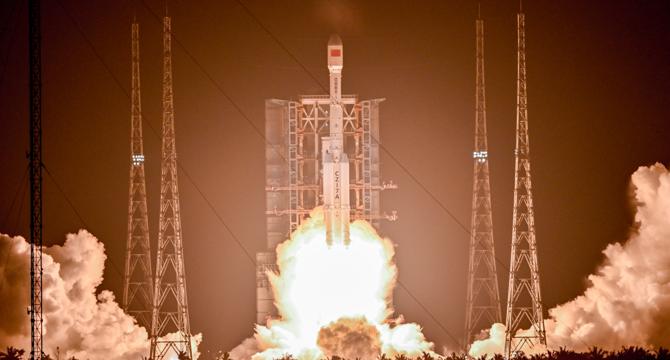Livescience
1d
30

Image Credit: Livescience
China is building a constellation of AI supercomputers in space — and just launched the first pieces
- China has launched its first cluster of satellites for a planned artificial intelligence (AI) supercomputer constellation in space.
- The 12 satellites are the beginning of a proposed 2,800-satellite fleet for the Three-Body Computing Constellation, which will process data directly in space.
- The satellites aim to reduce China's reliance on ground-based computers by using natural cooling in space and a combined computing capacity of 1,000 peta operations per second.
- This initiative marks a shift towards using AI in space, with potential applications in various fields like GPS, climate sensors, and communication.
- Companies are exploring edge computing on satellites, allowing for data processing in orbit before transmission to Earth and reducing carbon footprint.
- Each satellite in China's launch contains an 8 billion-parameter AI model capable of performing 744 tera operations per second, with five peta operations per second collectively.
- The constellation plans to address complex computing challenges, inspired by the three-body problem, and promote international collaboration on the project.
- China's AI satellite array is the first to be deployed at an operational scale, pioneering a new approach to space-based computing.
- Former Google CEO Eric Schmidt has proposed launching data centers into orbit to address the growing need for data processing capabilities.
- As technology advances, the demand for massive power requirements in data centers is expected to rise significantly, posing challenges that need innovative solutions.
Read Full Article
1 Like
For uninterrupted reading, download the app